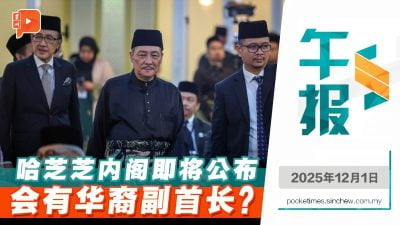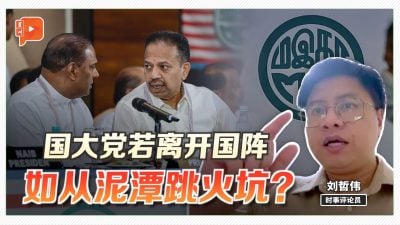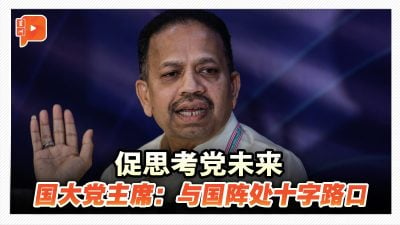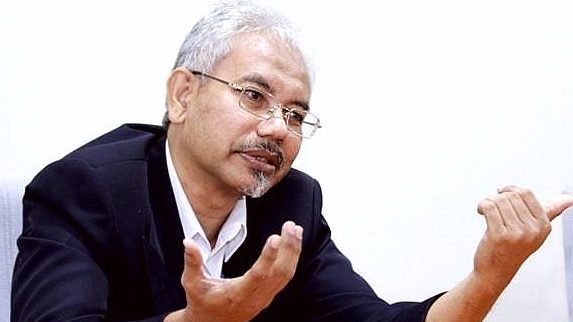
In this article, I wish to ask a few important questions about the objective of a national television air time and the institution responsible for the Hari Raya celebration.
These questions that I will ask were sparked by the recent news that Perikatan Nasional’s version of Takbir Raya was stopped by TV3 after agreeing to its air time.
Perikatan Nasional was quick to accuse the unity government of hidden hands in the TV3 pullout.
Now, let me ask my first question on what is the implications of this unprecedented event of two opposition parties being allowed to televise their own version of Takbir Raya as opposed to the single nationally televised Takbir Raya from Masjid Negara or Putra Mosque, where the Yang di Pertuan Agong and the Prime Minister would perform the Solat-id al Fitr or Hari Raya Prayers?
Ever since any Malay Muslim can remember, at the dawn of television in Malaysia, the Takbir Raya would be performed by the Islamic religious authorities in Malaysia, and all the television channels would live telecast the event.
This is not only the most important single act of unity among Muslims in Malaysia but is also a symbol of a Malaysian identity that only the religious ceremony of one religion is allowed to be aired to the public.
This act affirms the idea of Islam as a special clause in the unique Constitution of this country.
Now, what does it mean when PAS and PPBM are allowed to perform Takbir Raya on a nationally televised channel?
For the first time in the history of this country, we would witness the birth of “two Islam” in this country; one belonging to a legitimately elected and appointed government of His Majesty the YDP Agong, while another, the religion of two opposition parties whose members are Muslim-Malay based.
If the performance of Takbir Raya were to have been televised live at the same time as the official Takbir Raya, this raises serious questions on what may be in store for the future of Malay Muslims in this country.
One implication could be that an opposition party would be strong enough to command the influence of a significant portion of Malay Muslims thus, they would perhaps initiate a move to establish their own version of Islam complete with their own interpretation of when to declare Hari Raya as well as their own laws and code of conduct plus the halal and haram issues.
For the first time in history we witness the birth of “two Islam” in this country: one belonging to a legitimately elected government, and the other of two Muslim-Malay opposition parties.
I was told by an Indonesian academic that in that country, the occurrence of Hari Raya being celebrated on two different days is a common practice.
This happens because he followers of the Muhammadiyah Islam accept only the authority of its leaders and not that of the national leadership.
Will the same thing happen in Malaysia if Perikatan Nasional is strong enough to influence more than half of the Malay-Muslim populace?
The news of Hadi Awang’s defiance of the Sultan of Terengganu in not allowing politicians to read the Friday sermons and talk about narrow political interests serving his own party is now common knowledge.
To this day, no one knows of any disciplinary action that has been taken on Hadi.
Does this then signal a split between the nation’s idea of Islam, thus rendering the legitimate authority of the institutions and the royal guardians as irrelevant?
No one as yet knows why TV3 pulled out just a few minutes before air time. Kudos to the TV3 management if it had done so on its own accord, as the event would trigger an unprecedented challenge to the authority of the YDP Agong in relation to his traditional and constitutional role as the Guardian of Islam in Malaysia.
In the days of social media, we all know the dying influence of television.
GE15 proved that most voters had relied on the simple and quick messages of TikTok influencers giving a resounding win to the opposition.
Thus, on the one hand, even if TV3 had televised Takbir Raya by the two opposition parties PAS and PPBM, many would say its effect would be negligible.
I disagree. If the effect were negligible, then why did PN was willing to pay a large amount of money for air time with a “waning” media?
I understood the PN’s strategy as symbolic. The coalition wished to portray that they are the government-in-waiting and that they command the majority influence among non-Muslims in this country.
The strategy is still a race and religious baiting game of which party is “loved by God” and “more Melayu-caring.”
For me, the legitimate institutions of Islam should take the seriousness of the play by PN in challenging the authority of Islam in this country in the Takbir Raya issue.
In the past, we have PAS already being seen as championing their own brand of Islamic values, Islamic justice and its animosity and mistrust of non-Muslims.
How far will Malaysia allow political parties to use religion as a political play book to win elections?
How far will the institutions and traditional guardians of Islam allow a two-Islam Malaysia?
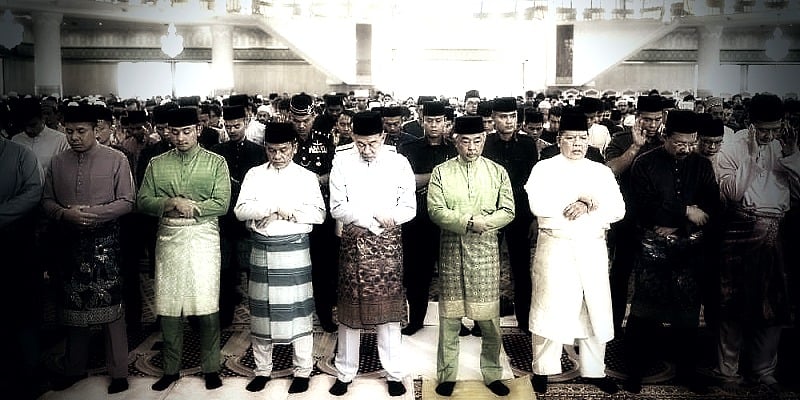
(Prof Dr. Mohd Tajuddin Mohd Rasdi is Professor of Architecture at a local university and his writing reflects his own personal opinion entirely.)
ADVERTISEMENT
ADVERTISEMENT







